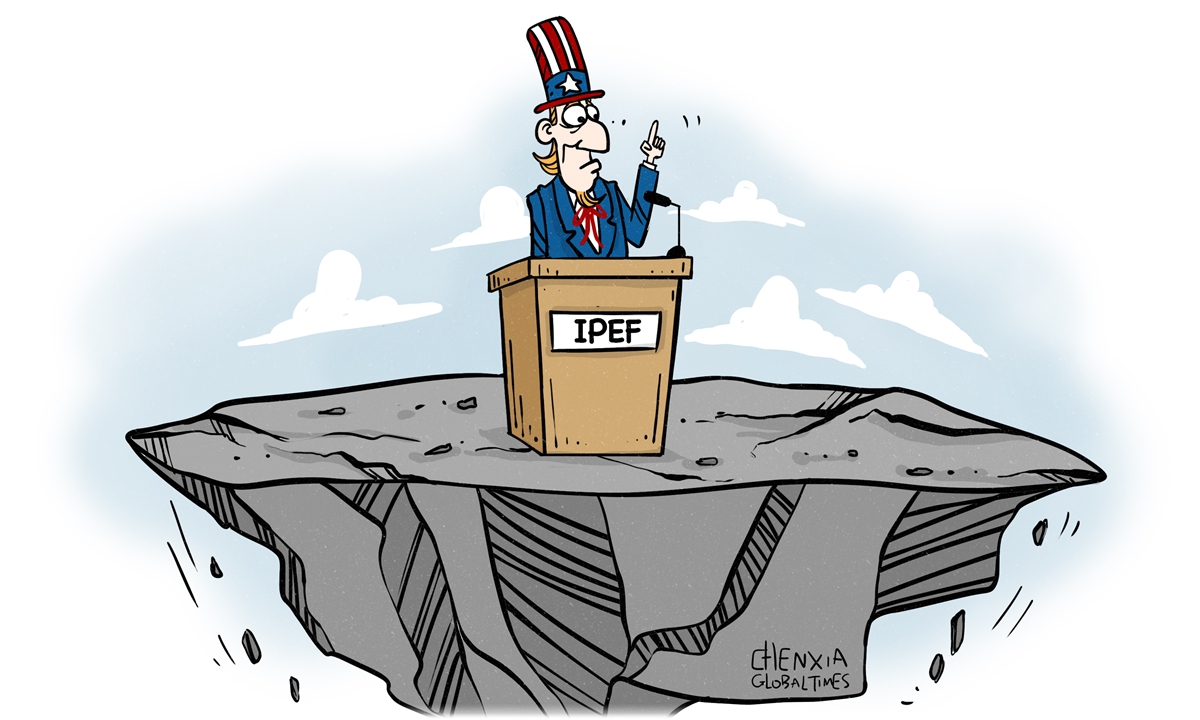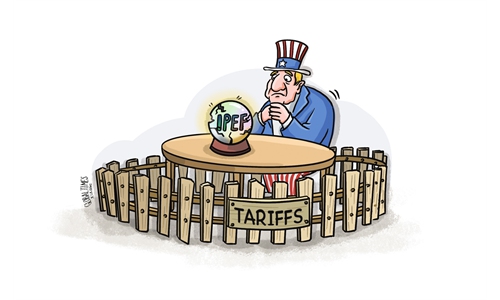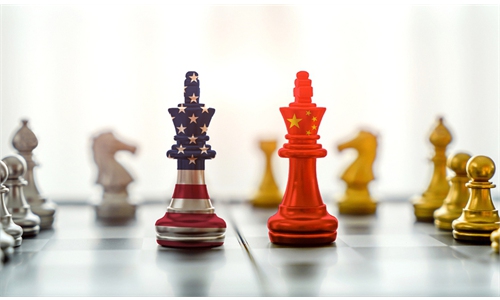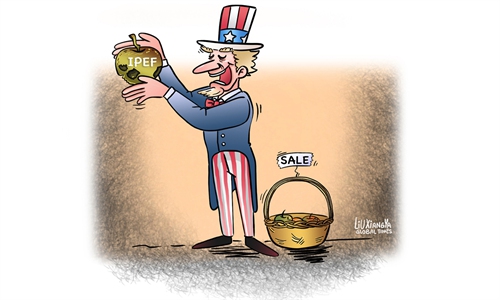
Illustration: Chen Xia/Global Times
Almost two years after the Biden administration unveiled its Indo-Pacific Economic Framework (IPEF), the economic initiative still hasn't generated any real trade deals, a development that may have disappointed the participating countries rather than surprising them, as the IPEF itself is originally a strategic alliance targeting China in the guise of boosting trade ties.Japanese media outlet Nikkei Asia said in a report over the weekend that the outlook for the trade section of the US-led IPEF looks increasingly dim as American politicians have turned against free trade.
The report wasn't the only bearish voice about the IPEF's trade component. Marc Mealy, senior vice president of policy at the US-ASEAN Business Council, said during an online panel in January that a continuing lack of "concrete, tangible and commercially relevant results" from the IPEF was leading to a loss of interest from non-US partners.
While agreements on three of the four IPEF pillars - supply chains, clean energy and a fair economy - look like progress made on the initiative, these areas will amount to nothing but empty talk without real trade deals and implementation.
If anything, the attention and pessimism surrounding the stalled progress of negotiations over the trade pillar highlight concerns among non-US IPEF countries about whether the US will again keep the door shut when it comes to sharing trade dividends, like what the US had done to the Trans-Pacific Partnership (TPP). In the past, the US government sought to marginalize China by building a so-called high-standard trade network under the TPP, but it withdrew from the network later because of the US reluctance to open up its domestic market.
Even though the Biden administration touted economic and trade cooperation as an important selling point when launching the IPEF, it is not hard to tell the IPEF is not even close to the TPP in terms of actual trade commitments, which is sufficient to show whether the US is really sincere about strengthening economic cooperation with the Asia-Pacific countries.
Indeed, it is no secret that the Biden administration has used various cooperation mechanisms to win over regional countries to curb the momentum of their cooperation with China. The IPEF is no exception, as it is aimed at creating a small circle of supply and industry chains in the Asia-Pacific region that are "decoupled" from China.
Yet, the geopolitics-based economic framework was flawed from the very beginning. The US wants regional countries to cooperate in implementing its global and geopolitical strategies under the IPEF, while it is unwilling to provide substantial benefits such as market access and tariff reductions to the countries it seeks to bring on board.
In other words, the US wants countries to jump on its bandwagon and buy the "tickets" on their own or pay a high price without disturbing Washington's own interests. So, as it becomes increasingly clear that the IPEF will not help regional economic and trade development but instead may even bring more disruptive factors, it is questionable how much impact the framework will have on regional countries.
Moreover, some IPEF partner countries, such as India, have significant differences with developed economies such as the US and Japan in areas like the digital economy, cross-border data transfers, labor practices and environmental rules, with some even triggering opposition from domestic politics in the US. These conflicts of interest are unlikely to be properly resolved in the foreseeable future, and regional cooperation cannot wait indefinitely for the US to find a solution.
The original intention of the IPEF was to counter China's influence in the Asia-Pacific region, but if China's role in regional industry chains is taken into consideration, the wanton US approach toward the close ties between China and regional supply chains will only make its IPEF and other geopolitical tools become "castles in the air" without actual economic significance.



